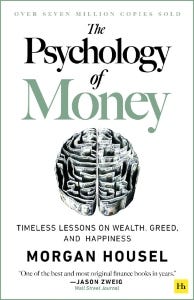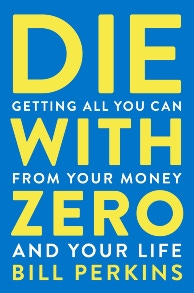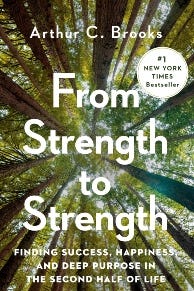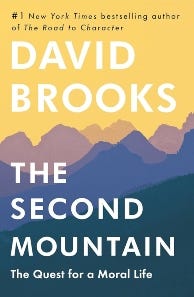Leadership Minute: The Exit Kit
When you experience a massive change in your personal or professional life, you need the right resources to guide you. This is a great start
Every so often, life presents an inflection point—a moment when you need to reassess almost everything. That shift often comes after stepping away from something that’s been a defining part of your identity. For me, that moment was exiting my business.
A few years ago, I brought on an investment partner and sold a substantial portion of the company I’d spent 15 years building and leading. The next year, I turned over the CEO role to my long-time number two.
You might think this would be the pinnacle of achievement and happiness. Most entrepreneurs dream about the moment when they’re liberated from the pressure of carrying a business on their shoulders while obtaining a sense of financial security and flexibility.
But—and feel free to play the world’s smallest violin while I say this—the shocking reality is that, for many people, exiting a business doesn’t feel like a pinnacle at all. It can feel more like a pit.
Over the past decade, I’ve spoken with many people who’ve seen their companies sold; some were founders, others were early leaders or key team members. Despite having the opportunity to live life on their terms with financial security, you'd be surprised how many of them aren’t happy, even years later. Some are quietly struggling with a loss of identity or purpose, and in more than a few cases, it's led to real depression.
While I never sunk that low myself, I now have a much deeper understanding of why others do. First, to state the obvious: the euphoria of the money hitting your bank account only lasts a few days. The hedonic treadmill ensures that no matter what kind of financial leaps we make, we always adjust to them before long.
But personal finance isn’t the only part of the equation. Even all the money in the world can’t replace one of the most significant things you lose when your company is sold: purpose. Over the years, a leader’s identity—whether as a founder, early employee, or key executive—often becomes deeply intertwined with the business. The process of decoupling from that identity is far more painful than most anticipate, and it often leaves people feeling lost and unmoored.
In particular, many successful entrepreneurs rush to do one of two things after an exit:
Immediately start a new company without taking a break.
Become an “angel investor” by throwing their money at other founders, hoping to shepherd the next big thing. This is something most people quickly regret and stop.
My strong recommendation is to do neither of these things, at least at first. Instead, do some intentional work to process your feelings, develop a new routine, consider what’s next, and contemplate what needs to change.
Over the years, I have gathered a few of my favorite resources that can help with this process, many which I have sent to friends who have just finished an exit or are preparing for one. You could call it an Exit Kit.
While these resources are particularly helpful for exiting entrepreneurs, most of them are broadly applicable. In particular, I’d recommend the four books below to anyone going through a meaningful career or life transition: whether it’s retiring, changing careers, or even going through a major break-up. They are great guides to reorienting yourself around a stronger purpose and sense of worth that isn’t connected to your past.
Books to Read
The Psychology of Money by Morgan Housel. Housel’s book, which has become an overnight sensation, is a persuasive exploration of a better definition of wealth—freedom and flexibility—and why more money won’t make you happier. This book fundamentally changed my perspective on what is enough and explains the importance of a wealth strategy that mitigates risks and volatility. It also highlights the value of consistency, the hidden cost of trying to time the market, and the uncomfortable truth that, in investing, our emotions are often in the driver’s seat and need to be managed with discipline.
Die With Zero by Bill Perkins. This is a good counterweight to the financial discipline Housel preaches. When you successfully exit a business, you’ll have two things almost everyone else in the world wants more of: time, and money. However, most people don’t capitalize on either; rather than using their resources to impact the people and causes they care about during their lifetime, they make those contributions as part of an estate plan executed after they’re gone. Perkins encourages using the majority of your resources during your lifetime while mitigating your largest risks. He also makes a compelling case to consider investing in experiences, not things.
From Strength to Strength by Arthur Brooks. If your work or business has been your identity, stepping away can leave a void that’s hard to fill. Brooks, the HBS professor of happiness, tackles this phenomenon with insight and compassion, offering a roadmap for the second half of life. He explains why the skills that brought early success often fade and shares how to embrace a different kind of growth rooted in wisdom, connection, and service. This book helped me reframe aging not as a decline, but as a transition into a more fulfilling chapter, one where we use our hard-earned wisdom as a tool to create greater impact. More than anything I read, this is what kept me from falling into the trap of immediately launching another business or chasing a 10X investment in startups.
The Second Mountain by David Brooks. Exiting a business is often the summit of your first mountain. But what comes next? Brooks offers a deeply thoughtful guide to finding purpose beyond achievement. He explores the four commitments that give life meaning: to a spouse or family, to a vocation, to a community, and to a philosophy or faith. This book helped me think differently about legacy, which is not something you leave behind, but something you live out daily through service and connection.
Articles to Read:
Transparently, these are much more targeted at exited entrepreneurs than the books, which are more generally applicable.
What’s Next? The Entrepreneur’s Epilogue and the Paradox of Success:
Nearly every founder I’ve talked to post-exit has said the same thing about this report: it’s the most accurate description of the experience they’ve seen.
Published by the Yale School of Management, the research was led by two entrepreneurs—Matthew Guilford and Jacob Donnelly—who partnered with Yale to study what really happens after a successful exit. They interviewed dozens of founders and uncovered a clear pattern: achieving the goal you’ve worked toward for years can often lead to confusion, disorientation, and a loss of identity.
But they don’t stop at naming the problem. The report explains why this happens, shows the impact of timing, and offers a thoughtful roadmap for navigating what comes next. It’s essential reading for anyone nearing or moving through an exit.
The report also has two valuable follow ups:
A Dozen Questions To Consider After Selling Your Business: A great list of questions to prompt deep thinking on what you want from the next stage of life after exiting a business.
Exploring Six Key Decisions Post-Exit Entrepreneurs Will Have To Make: This third Yale case guides exiting founders through detailed tactical decisions, such as how to manage their newfound wealth, how to find a sustainable level of spending, structuring a new routine, and even approaching philanthropy.
Selling a business is one of the greatest achievements imaginable, but that doesn’t mean it brings a life-altering feeling of accomplishment or satisfaction. Instead, it ushers you into a new stage of life that should be navigated with intention and guidance.
I hope these resources can support you in designing a life-after-exit that fits your values and lifestyle.
The Leadership Minute, available exclusively to Friday Forward premium subscribers, is a weekly newsletter that will teach you to become the leader you want to be and live a life aligned with your principles. It features tried and true strategies from my own life and from the best leaders I know, presented in a digestible format that you can read in 10 minutes and put into to practice today.








Hi, Robert. I started a catered and event company 45 years ago. Over the course of those years, my husband and then our sons joined us. We became a family-owned business and celebrated our 40th year when we sold to a local restaurant group during Covid. Our sons decided to seek new careers and doing great. My husband and I took two years off to decide what we wanted to do with the rest of lives. Last year, at the ages of 75 and 74 respectively, we started a foundation called One Table Together. We bring together 80 high schools students with professional facilitators over a shared dinner that is prepared by the school culinary students (touching lives in another way) to discuss how, as a school community, they can build better relationships in their very diverse student body and create better communication with less discrimination, bullying and biases. We held our first one just this last week to rave reviews. Some of the students are now going to speak to the entire student body on what they learned and how they can work together to better their school. We certainly understand that one dinner will not change the course of generational discrimination, but it is a start and we will continue to work with this school as we collaborate with other organizations to provide follow up resources to engage students over and over.
For us, it took those two years to get over the loss of "purpose" to create a worthwhile program that will change generations. It will, in fact, give employers a better workforce that knows how to get along and work as a team. I absolutely felt the sense of loss, but we haven take those leadership skill we learned in owning our company to find a second purposeful life.
Regards,
Maxine Turner, Founder (retired) Cuisine Unlimited Catering & Special Events
Founder, One Table Together
Salt Lake City, Utah
maxine.tec@icloud.com
PS: Love your Leadership Minute & Friday Forward